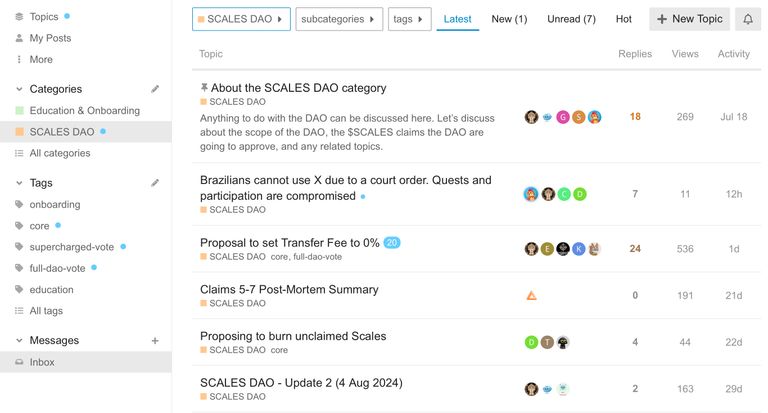Decentralized Autonomous Organizations (DAOs) represent a groundbreaking shift in how organizations can be structured and governed. By leveraging blockchain technology and smart contracts, DAOs eliminate the need for a central authority, allowing for a more democratic and transparent management process. This article explores the role of DAOs in the crypto space, the benefits and challenges they face, and how they might evolve in the future.

DAO proposes new policies and organizational directions, then asks for votes to decide
What is a DAO?
A DAO is an organization governed by smart contracts, with decisions made collectively by its members. These decisions are recorded on the blockchain, ensuring transparency and accountability. DAOs are particularly prevalent in the cryptocurrency world, where they facilitate decentralized governance and community involvement.
The Role of Governance Tokens
Governance tokens are crucial to the functioning of DAOs. They grant holders the right to vote on proposals and influence the organization's direction. These tokens embody the decentralized ethos of DAOs, allowing stakeholders to participate actively in governance processes. Beyond voting, governance tokens can also be used for yield farming, staking, lending, and other financial activities, thereby incentivizing participation and contributing to the ecosystem's growth.
Strengths of DAOs
- Decentralization: DAOs eliminate the need for a central authority, promoting a more democratic governance model.
- Transparency: All actions and decisions are recorded on the blockchain, ensuring transparency and accountability.
- Community Engagement: DAOs foster a sense of ownership and involvement among members, as they have a direct say in the organization's operations.
Challenges and Solutions for DAOs
Despite their strengths, DAOs face several challenges:
- Decision-Making Efficiency: The consensus-driven model can slow down decision-making. To address this, DAOs can implement tiered voting systems or delegate decision-making to smaller committees for specific issues, thereby streamlining processes while retaining democratic principles.
- Security Risks: DAOs are vulnerable to cyber threats. Enhancing security measures, such as regular audits of smart contracts and implementing robust cybersecurity protocols, can mitigate these risks.
- Expertise and Knowledge Gaps: Members may lack the necessary expertise to make informed decisions. DAOs can overcome this by providing educational resources and onboarding programs to ensure members are well-informed.
Sustaining the Original Intent of DAOs
To maintain the positive intentions of DAOs, it is crucial to:
- Foster Inclusive Cultures: Encourage diverse participation and collaboration among members to harness collective knowledge and wisdom.
- Implement Robust Ethical Guidelines: Establish clear ethical principles to guide decision-making and ensure actions align with the DAO's values and goals.
- Regularly Evaluate Performance: Continuously assess the effectiveness of governance processes and make necessary adjustments to improve outcomes.
The Future of DAOs
The future of DAOs is promising, with potential for further innovation and integration into various sectors. As blockchain technology matures, DAOs could collaborate with traditional financial institutions and organizations, offering new models of governance and cooperation. However, this will require addressing regulatory challenges and ensuring robust security measures to protect against vulnerabilities.
While DAOs offer a revolutionary approach to organizational governance, they must overcome certain weaknesses to realize their full potential. By enhancing security, improving decision-making processes, and fostering collaboration with traditional entities, DAOs can continue to evolve and contribute positively to the broader financial ecosystem.